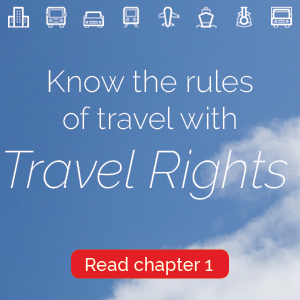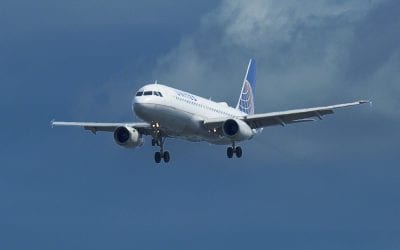The biggest threats to a free market in international aviation are anti-consumer airline alliances. Though around 20 airlines provide trans-Atlantic flights, only three alliances with antitrust immunized carriers (one within each alliance) combine to carry over 82 percent of the U.S.-E.U. passenger traffic.
This situation is totally the creation of the Department of Transportation (DOT)
DOT permitted anti-consumer airline alliances, code sharing, and antitrust immunity. Airline alliances and code sharing are slick marketing systems built around interline agreements. However, the antitrust immunity granted by DOT has created defacto international airline mergers without oversight by antitrust watchdogs.

DOT has permitted scores of international anti-consumer alliance agreements and is allowing immunized international airlines to form joint ventures, collaborate on schedules, coordinate marketing, restrict capacity, and collude on airfares. These DOT actions have come over the loud protests of the Department of Justice, which for decades has been responsible for antitrust enforcement.
The DOT approach of encouraging the formation of alliances, grants of antitrust immunity and the encouragement of the formation of “metal neutral” joint venture has not worked. It has been an unmitigated disaster.
The consumer benefits, once touted by DOT, have disappeared
The new airline alliance landscape is far worse than it was prior to the world of airline alliances and antitrust immunity. The demise of consumer benefits and the creation of quantifiable consumer harm is accelerating as anti-consumer airline alliances begin to act like monopolies on routes and at airports that they dominate.
- International airline competition is now feeble among alliances
- Expanded airline routes are being dismantled with the demise of interline agreements
- Airlines have formed exclusive lounges that are exempt from most alliance members
- Frequent flier programs have devolved into a complex collection of different awards based on individual alliance members.
Competition across the Atlantic has dwindled to the extent that after jet fuel costs fell by almost 50 percent, many immunized international airfares actually increased from 2014 to 2016. And, rather than creating a benefit for consumers of additional international destinations, passengers have been harmed by the reduction in interline agreements and even with intra-alliance limits one through check-in and baggage transfers put into effect this summer.
Though there is more airline club sharing and limited frequent flier sharing, both of those benefits have been stripped of value by individual airline rules that limit the amounts of mileage that alliance airlines can earn on each other’s flights. Plus, many elite airline clubs are off limits to other alliance members.
20th Century airline alliances are stunting the growth of 21st Century aviation
The big three anti-consumer airline alliances – Oneworld, Star Alliance, and Skyteam – are not only harming consumers and economies today, they are slowing the international growth of rapidly growing domestic airlines.
Both JetBlue and Southwest Airlines have battled with international alliances as they have worked to expand their Caribbean and Central American networks. Hawaiian Airlines has seen major carriers overtly act to keep them from adding international flights between Hawaii and Asia. Alaska Airlines, even in its domestic market, is facing immunized Delta Airlines that is building a competing hub in Seattle.
While consumers and smaller airlines are the losers in this DOT-created allianceworld, the immunized airlines are raking in record profits and taking advantage of operational synergies that are driving their bottom line.
It is beyond time that DOT takes another look at the alliance-in-wonderland world that they have created by allowing a network of code-sharing agreements, airline alliances, and grants of antitrust immunity. The free market needs a breath of fresh air and competition should be allowed to flourish once again.

Charlie Leocha is the President of Travelers United. He has been working in Washington, DC, for the past 14 years with Congress, the Department of Transportation, and industry stakeholders on travel issues. He was the first consumer representative to the Advisory Committee for Aviation Consumer Protections appointed by the Secretary of Transportation from 2012 through 2018.



